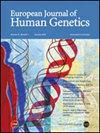基因测试作为预言:理解(预测性)基因测试中的自我挫败和自我实现机制。
IF 4.6
2区 生物学
Q2 BIOCHEMISTRY & MOLECULAR BIOLOGY
引用次数: 0
摘要
预测性基因测试是反射性的,因为它们不仅有可能表明未来可能的健康结果,而且有可能影响最终的结果。这篇文章概述了基因测试是如何自我实现、自我挫败或以其他方式影响人的健康的。事实上,某些反射性是测试的主要目标,因为当那些有遗传癌症风险的人打算利用这些知识来降低风险时。我们的分析强调了预测性基因检测的意想不到的、难以理解的、经常被忽视的反射效应,因为这些效应在遗传咨询中可能变得越来越重要。首先,在孟德尔式“单基因”疾病的预测测试中存在反射性。其次,其他反射机制揭示了遗传易感性和自我或他人期望之间潜在的反馈循环——在精神疾病、认知和行为特征的多基因易感性测试的背景下,这种反馈循环甚至更大、更复杂。最后,如果这些测试用于产前基因检测,还有其他影响。随着基因组检测更广泛地应用于复杂疾病,以及个性化医疗趋势的鼓励,尤其是直接面向消费者的商业基因检测在很大程度上仍未受到监管,这些反射效应越来越有可能出现。认识到反射性预测效应的范围在遗传咨询中已经很有用,而且随着基因组检测范围扩大到更复杂的疾病和非疾病特征,这种认识将变得更加重要。了解潜在的机制将进一步增加有意识地选择有益的反应或有效的治疗的可能性。如果不注意这些影响,测试对更复杂性状的易感性的结果可能仍然不透明,因此难以评价和管理。本文章由计算机程序翻译,如有差异,请以英文原文为准。
Genetic tests as prophecy: understanding self-defeating and self-fulfilling mechanisms in (predictive) genetic testing
Predictive genetic tests are reflexive in that they have the potential not merely to indicate plausible future health outcomes, but to influence the eventual outcome. This article offers an overview of how genetic tests can be self-fulfilling, self-defeating, or otherwise influence what happens to the person’s health. Certain reflexivity is in fact the primary goal of testing, as when those at risk of inherited cancers intend to use this knowledge to decrease said risk. Our analysis emphasises unintended, poorly understood, and often overlooked, reflexive effects of predictive genetic testing, as these may become increasingly important in genetic counselling. First, there is reflexivity in predictive testing for Mendelian, ‘monogenic’ disorders. Second, other reflexive mechanisms reveal the potential for feedback loops between genetic susceptibility and expectations held by the self or others—which are even greater, and more complex, in the context of polygenic susceptibility tests for psychiatric illness and cognitive and behavioural traits. Finally, there are additional implications if these tests are used in prenatal genetic testing. These reflexive effects are increasingly likely as genomic testing is more broadly applied to complex diseases and encouraged by trends in personalised medicine—and especially with direct-to-consumer, commercial genetic testing remaining largely unregulated. Recognising the scope of reflexive predictive effects is already useful in genetic consultation and will become more important as the scope of genomic testing broadens to more complex diseases and non-disease traits. Understanding the underlying mechanisms will furthermore increase the possibility of consciously choosing a beneficial response or effective treatment. Without attention to these effects, the consequences of tests for susceptibility to more complex traits are likely to remain opaque and therefore difficult to evaluate and regulate.
求助全文
通过发布文献求助,成功后即可免费获取论文全文。
去求助
来源期刊

European Journal of Human Genetics
生物-生化与分子生物学
CiteScore
9.90
自引率
5.80%
发文量
216
审稿时长
2 months
期刊介绍:
The European Journal of Human Genetics is the official journal of the European Society of Human Genetics, publishing high-quality, original research papers, short reports and reviews in the rapidly expanding field of human genetics and genomics. It covers molecular, clinical and cytogenetics, interfacing between advanced biomedical research and the clinician, and bridging the great diversity of facilities, resources and viewpoints in the genetics community.
Key areas include:
-Monogenic and multifactorial disorders
-Development and malformation
-Hereditary cancer
-Medical Genomics
-Gene mapping and functional studies
-Genotype-phenotype correlations
-Genetic variation and genome diversity
-Statistical and computational genetics
-Bioinformatics
-Advances in diagnostics
-Therapy and prevention
-Animal models
-Genetic services
-Community genetics
 求助内容:
求助内容: 应助结果提醒方式:
应助结果提醒方式:


